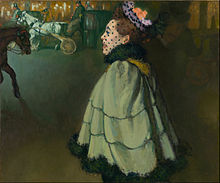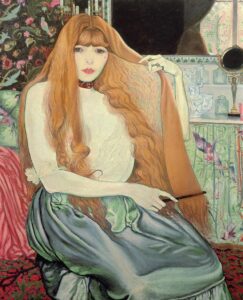Dear Zazie, Here is today’s Lovers’ Chronicle from Mac Tag dedicated to his muse. Follow us on twitter @cowboycoleridge. Rhett
The Lovers’ Chronicle
Dear Muse,
© copyright 2021 mac tag/cowboy coleridge all rights reserved
© copyright 2020 mac tag/cowboy coleridge all rights reserved
Pale Love, Pale Rider
“If you go on
ignoring the beat,
you will never find
what is necessary.”
to know and have a sense
of everything worth doin’
thoughts of bein’ here or there
startin’ to wonder
if there is a way out
from goin’ futher in
or if that even matters
do not wait for me
© copyright 2019 mac tag/cowboy coleridge all rights reserved
oh here comes
one of my favorite dreams…
you in that killer black dress
and those Louboutin shoes
me in my boots and my
white dinner jacket tux
where we go
or what we do
does not matter
the night is ours
to do with as we please
it is enough,
for awhile, to keep
the black night at bay
that and a Vesper Martini
© copyright 2018 mac tag/cowboy coleridge all rights reserved
délier son âme
dans la rue la plus noire
qu’il pût trouver…
n’attendez pas pour moi ce soir,
pour la nuit sera noire
vision returns
intense, hauntin’
reflective of madness
diminished to ochres and blacks
nocturnal, unreal, devourin’
no way out
or no will
matters not
resigned
to keep on goin’
further in
pour la nuit sera noire
© copyright 2017 mac tag/cowboy Coleridge all rights reserved
Today is the premier date in 1790 of Così fan tutte, ossia La scuola degli amanti (All Women Do It, or The School for Lovers), K. 588; an Italian-language opera buffa in two acts by Wolfgang Amadeus Mozart first performed at the Burgtheater in Vienna, Austria. The libretto was written by Lorenzo Da Ponte who also wrote Le nozze di Figaro and Don Giovanni.
The short title, Così fan tutte, literally means “So do they all”, using the feminine plural (tutte) to indicate women. It is usually translated into English as “Women are like that”. The words are sung by the three men in act 2, scene 3, just before the finale; this melodic phrase is also quoted in the overture to the opera. Da Ponte had used the line “Così fan tutte le belle” earlier in Le nozze di Figaro (in act 1, scene 7).
Mozart and Da Ponte use the theme of “fiancée swapping”, which dates back to the 13th century; notable earlier versions are found in Boccaccio’s Decameron and Shakespeare’s play Cymbeline. Elements from Shakespeare’s The Taming of the Shrew are also present. Furthermore, it incorporates elements of the myth of Procris as found in Ovid’s Metamorphoses, vii. The opera takes place in Naples.

Today is the birthday of Louis Anquetin ( Étrépagny, France 26 January 1861 – 19 August 1932 Paris); painter.
In 1882 he came to Paris and began studying art at Léon Bonnat’s studio, where he met Henri de Toulouse-Lautrec. The two artists later moved to the studio of Fernand Cormon, where they befriended Émile Bernard and Vincent van Gogh.
Around 1887, Anquetin and Bernard developed a painting style that used flat regions of color and thick, black contour outlines. This style, named cloisonnism by critic Edouard Dujardin, was inspired by both stained glass and Japanese ukiyo-e. One example of this can be seen in Avenue de Clichy: Five O’Clock in the Evening.
He eventually opted to study the methods of the Old Masters. Thus, Anquetin’s works following the mid-1890s, such as Rinaldo and Armida, were especially Rubensian and allegorical in nature. In 1907 he met Jacques Maroger, a young artist who shared his interest, with whom he collaborated.
Later in life, Anquetin wrote a book on Rubens, which was published in 1924.



-

Moulin Rouge, 1893
-

Elégante de profil au Bal Mabille, 1888
-

Woman with Umbrella, 1891
-

Reaper, 1887
-

Le pont de l’Europe, 1889, pastel on paper
-

Inside Bruant’s Mirliton, 1886-1887

Mac Tag


No Comments on "The Lovers’ Chronicle 26 January – waitin’ – premiere of Mozart’s Cosi fan tutte – art by Louis Anquetin & Kees van Dongen"